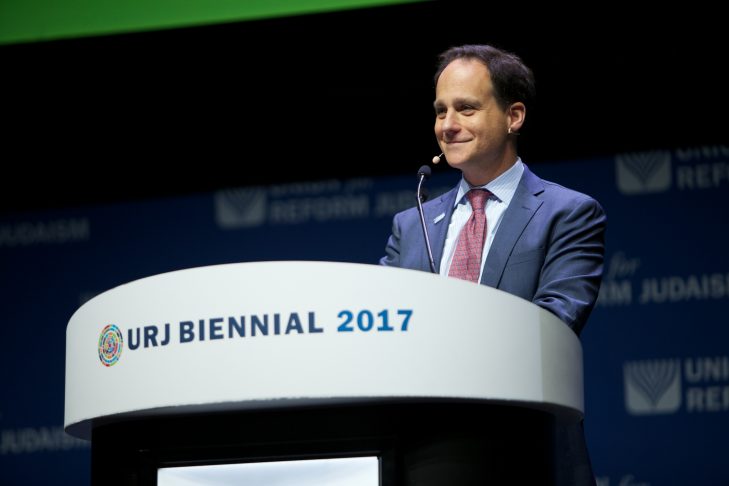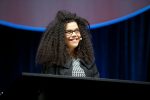In an interview with JewishBoston conducted over email, Rabbi Jonah Dov Pesner, director of the Religious Action Center of Reform Judaism (RAC), talks about the Reform movement’s commitment to social justice and its campaigns for LGBTQ rights, protecting immigrants from deportation and ending injustice and racism in the criminal justice system.
What are the roots of the Reform movement’s dedication to social justice?
Related
What ongoing projects are a priority for the movement?
Right now, we are focused on movement-wide campaigns to defend the rights of transgender people, protect immigrants fearing deportation and end mass incarceration and the systemic racism in our criminal justice system. We believe that the covenant is for all people, and that America is at its best when it is welcoming and inclusive. Our vision is to stand with the most vulnerable members of our society and build strong campaigns in our congregations, working with allies across lines of faith and other forms of difference to transform the world. We have recently joined the Poor People’s Campaign: A National Call for Moral Revival, and with partners from other religious groups we will be standing together to defend and empower poor and marginalized people so that all people may experience a world of justice, wholeness and compassion.
How do you see the movement strengthening its commitment to social justice?
The Reform movement is committed to congregation-based community organizing to build power at the local, state and national levels. We are asking congregations to sign a brit olam—a covenant with our world—to affirm their commitment to this work. We introduced the brit olam last spring, hoping to sign up 100 congregations by the URJ Biennial. At Biennial, we were able to announce that 140 congregations have signed it. That demonstrates an enthusiasm for action and a commitment to the pursuit of justice.
What are your priorities for the Religious Action Center in the coming year?
In 2018, the RAC is going to prioritize strengthening local activism at the congregational level. We’re going to focus on key states, including California, New York, Texas, Ohio and Illinois, where we have hired local organizers to partner with clergy and lay leaders to empower networks of congregations. And ahead of the 2018 mid-term elections, we plan to be very active with nonpartisan voting rights advocacy, voter registration and election protection. And we’re going to make sure that candidates and elected officials are responsive and accountable on the issues that impact the most vulnerable people, including immigration, transgender rights and criminal justice reform.
How will the movement support our liberal Israeli brethren going forward in their fight for equal access and religious freedom?
Hebrew Union College-Jewish Institute of Religion just ordained the 100th Israeli Reform rabbi. That’s an incredible milestone. At Biennial, Rabbi Rick Jacobs, URJ president, announced that the Reform movement in North America would be doubling our financial investment in Reform Judaism in Israel. We’re in this together, strengthening pluralistic and inclusive Judaism in North America and Israel. With partners like the Israel Movement for Reform and Progressive Judaism, Israel Religious Action Center and Women of the Wall, we’re going to keep fighting for recognition, equality and justice. We’re doing this work with dedicated partners, including UJA-Federation of New York.
And as we work for religious pluralism in Israel, we’ll also continue our advocacy for a peace agreement and a two-state solution, which we are committed to as the best hope of securing Israel’s Jewish and democratic future. We are so firmly committed to this work because of our deep love for and connection to Israel.
Is there anything else you would like to add?
Thank you for this opportunity. As the largest and most diverse Jewish movement in North America, the Reform movement has an opportunity and responsibility to model vibrant inclusion in our congregations and institutions and defend it in the world beyond our synagogues. There are challenges ahead in both the United States and Israel, but with love for both countries—as patriots and Zionists—we are deeply committed to meeting the urgency of this moment.





